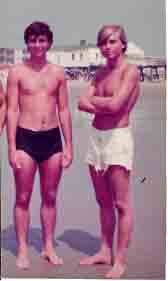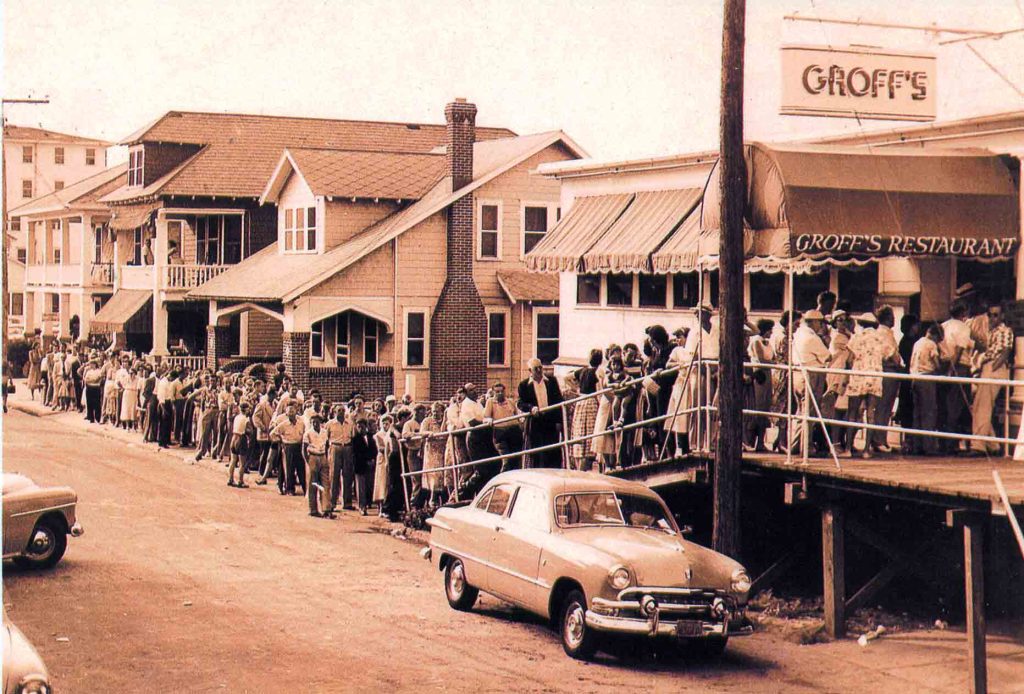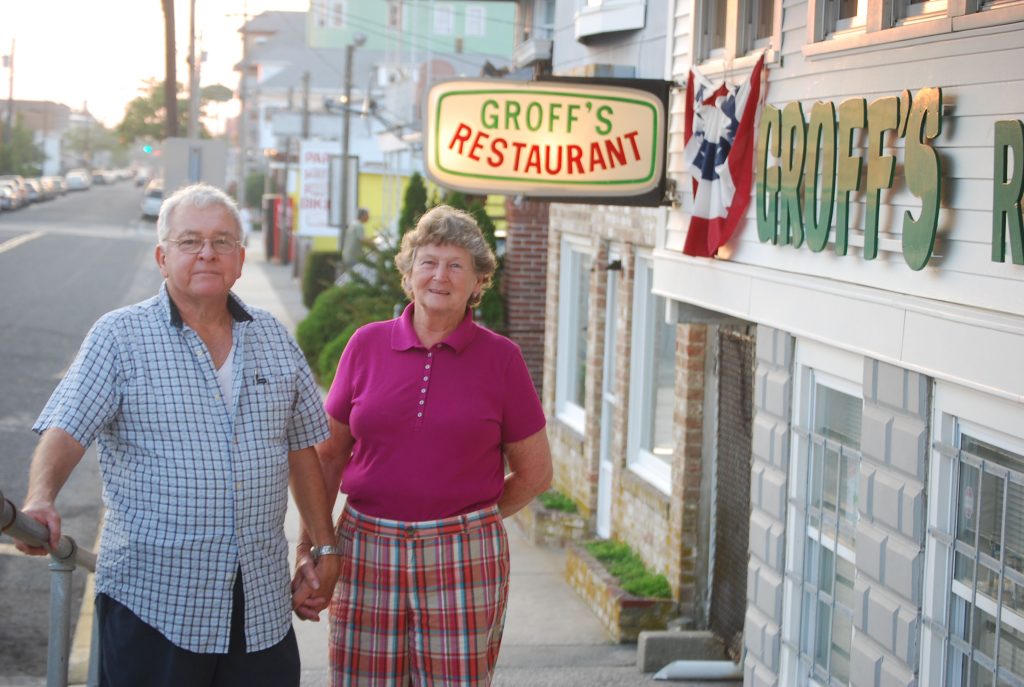by David Barret

Barret brothers David (L) & Gary (R) on Wildwood beach c. 1973
By 1973, my brother Gary, an undergraduate Physics major at Temple University and the recipient of a scholarship, had worked in Wildwood’s Groff’s Restaurant for several summers. He was about to receive a laboratory teaching assistantship that would provide him with an income during the academic year. He made an unusual choice on how to make a living at the seashore. Rather than working on the boardwalk, he decided to work under it.
Gary roomed that summer with friends Jeff Perkins and Jim Brogan a block from the beach on Heather Road. I took an engineering internship in Stroudsburg PA, the first summer my brother and I were separated.
Somehow, Gary had acquired a wooden window screen with the kind of frame particular to the windows of the old tenement buildings in central Wildwood and the original seashore cottages. If the screen was held horizontally, it could be used to sift for objects such as nickels, dimes, and quarters hidden within scoops of sand. Gary knew there was money to be found under the boardwalk.
My brother has a very strong will that has powered him through many challenges including medical school, hospital residency, and a demanding professional life. In 1973, that “will” was very much up-and-running.
Gary would rise at 4:30 AM, ready to start work at least an hour before sunrise. It was dark, and darker still under the boardwalk. Because he didn’t use any form of artificial light, the rods in his retinas went into overdrive. He carried no other tools to assist his labor.
Lifting and shaking the sifter would cause the sugar sand to readily pass through the screen, leaving the bigger contents behind. Coins were quickly pocketed.
At that time, a dishwasher was paid a little less than $2 an hour. A busboy in a busy restaurant could make just over $3 and hour. Gary’s yield ranged from $7 on a poor day to above $15 on a good day. His average compensation was approximately $12 a day. (He worked seven days a week, except for rainy days). However, compensation was not an important consideration. Gary never seemed to work past 8:00 AM, quickly learning where the hotspots were for finding coins. After an early morning’s toil, he could spend the rest of the day on the beach.


Over the course of just one night, the forty quarters that make up ten dollars sounds like too many coins to find in a gap in the beams of the boardwalk. However, those days, most transactions were in coins, and thousands of vacationers flooded the boardwalk each night.
Gary started each day before daybreak because of the competition. He beat his rivals by facing the dark and the early morning cold, a good practice for his medical residency.
He never reported having any unusual adventures while sifting, and to the best of my knowledge, he never ran afoul of the Police Department.
He discarded the sieve at the end of the summer.
In a subsequent summer he served as a medic for the North Wildwood Beach Patrol. He eventually graduated from the Medical College of Pennsylvania and now practices medicine in coastal South Carolina. It comes as no surprise that he would be living near a beach.
